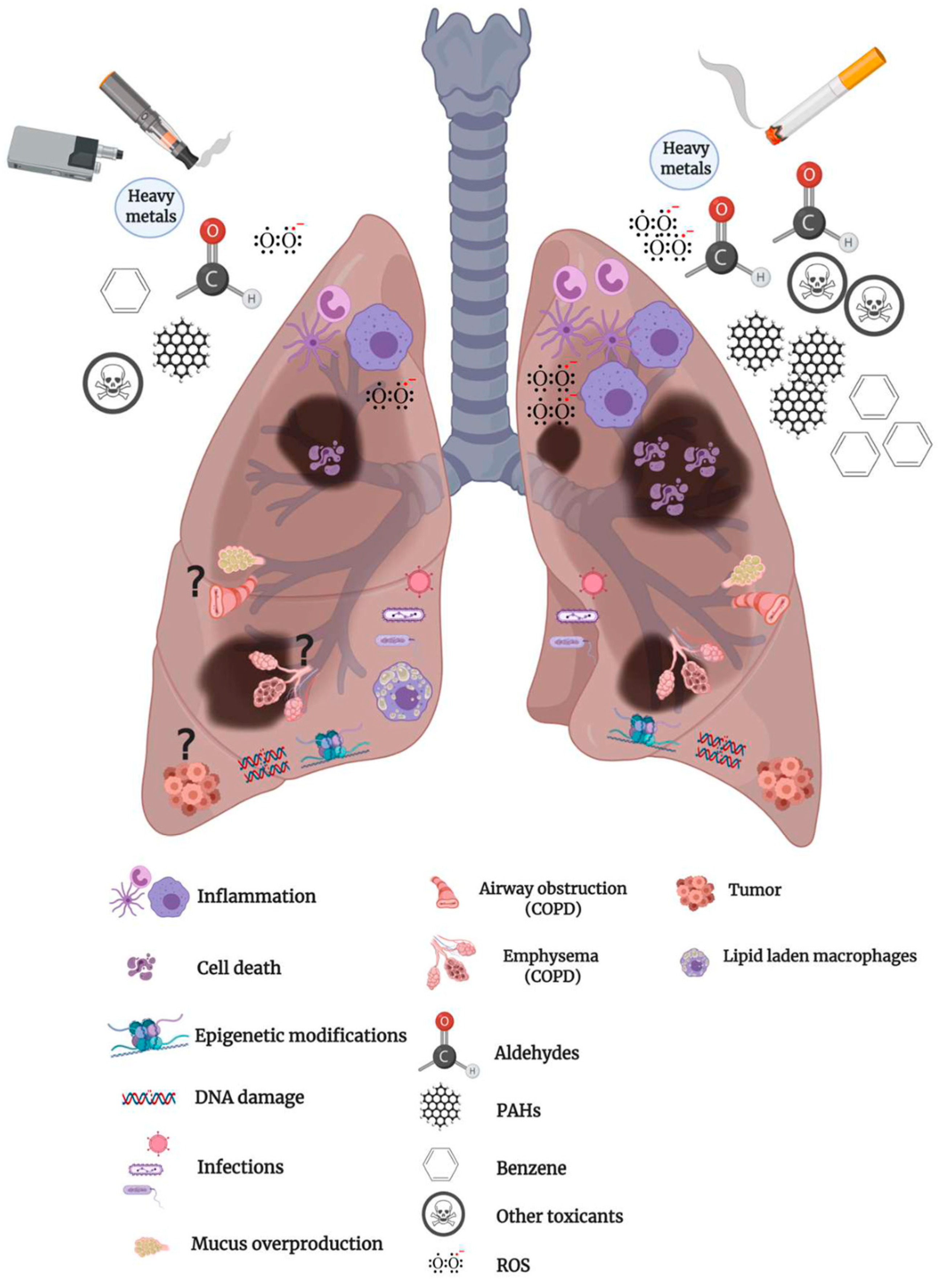Electronic cigarette aerosol contains potentially harmful substances with established links to respiratory damage. While often perceived as safer than combustible cigarettes, research indicates significant lung health risks.
Key Respiratory Risks of Vaping
- Lung Inflammation & Irritation: Propylene glycol, vegetable glycerin, and flavoring chemicals irritate airways, causing coughing, wheezing, and shortness of breath.
- Impaired Lung Defense Mechanisms: Vaping damages cilia (tiny hair-like structures) and reduces immune cell function, increasing vulnerability to infections.
- Development of Lung Conditions: Associated with increased risk of bronchitis, exacerbation of asthma symptoms, and emerging evidence suggesting links to chronic obstructive pulmonary disease (COPD).
- Exposure to Harmful Chemicals: Aerosols contain ultrafine particles, volatile organic compounds (VOCs), heavy metals (nickel, lead), and known carcinogens (like formaldehyde). Diacetyl, a common flavoring, is linked to bronchiolitis obliterans (“popcorn lung”).
- EVALI (E-cigarette or Vaping Product Use-Associated Lung Injury): A severe, potentially fatal lung injury strongly linked primarily to vitamin E acetate in THC-containing cartridges, highlighting acute dangers.
Comparing Harms
While vaping likely exposes users to fewer toxicants than combustible cigarettes, it is not harmless. The aerosol still delivers toxins directly to deep lung tissue. Long-term health impacts remain under investigation but early evidence points to substantial risks.

Specific Concerns for Youth
Adolescent exposure to nicotine disrupts brain development and increases susceptibility to lasting lung damage and nicotine addiction. Flavored products significantly increase youth initiation.
Essential Recommendations
- Non-Smokers & Youth: Avoid initiating e-cigarette use. Risks outweigh any perceived benefits.
- Smokers Seeking Harm Reduction: Consult healthcare professionals about FDA-approved cessation methods proven safer than vaping.
- All Users: Be aware of symptoms like persistent cough, chest pain, or breathing difficulties and seek immediate medical attention.
Current scientific evidence strongly indicates that electronic cigarettes pose significant and potentially severe risks to lung health, despite ongoing research.










